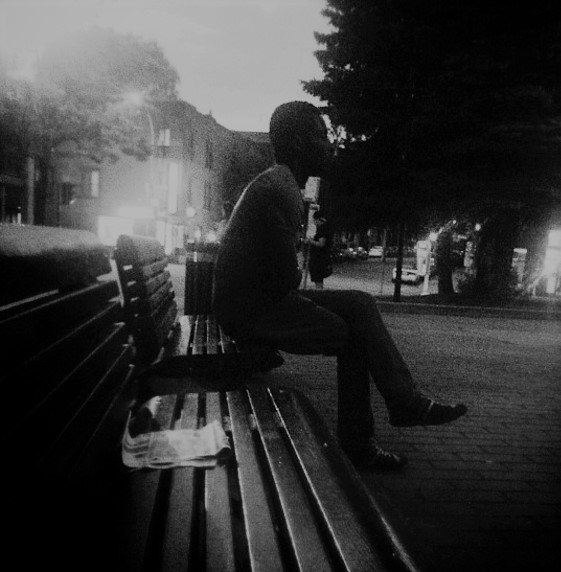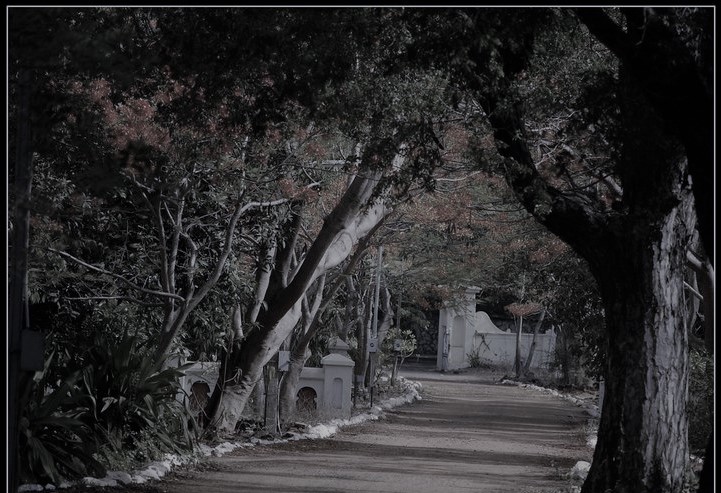
[Author’s Note: Quite ago, perhaps in 2013, I wrote it in the form of a novella, and its genre was science fiction. It has three parts and each part has varied number of chapters. Each chapter’s length also varies subject to nature of the arguments and twists in the story. The plot is set in India and Europe]
HANGED TIMES
Dr. Zaffar Junejo
Last year, before crossing forty, Gotam earned Ph.D. in Mathematics. But yoga and selected diet slowed his body’s decaying process. His aging process was sedated. He seemed a man of the late thirties. He recalled his college days and remembered Professor Shiraz Mahta, who was professor mathematic, and theosophist, and his favorite professor. Sometimes, he wondered how Professor Mahta lives harmoniously with the exactness of the mathematics and fluid concepts spirituality. Professor Mahta was envied by colleagues and loved by peons, gardeners and Chai boys. Professor was a common topic of the faculty – ‘professor is crack,’ ‘failed lover,’ ‘expert in discrete mathematics but couldn’t count his salary.’
 Gotam had learned from him: beauty in exactness, order in chaos, and rationality in madness. He whispered to himself Professor Mahta’s one of sentences: ‘woman’s body is a replica of nature’s geometrical designs’. He smiled. Professor Mahta was Samaritan, stoic, altruist, cosmopolitan and singleton, but lonely heart. More events dropped in, formed a galaxy. Instantly, he feared, he was dragged towards hyperthymesia. He couldn’t help, more happenings appeared to be counted: how he taught him art of comparative study and wisdom of solitary walks. He borrowed two words from English language to value the friendship, and respectfully said: ‘Unselfish and Thoughtful.’ He shunned his memory segment related to Professor. But another memory asteroid collide the window of his memory, – train and its tracks- the rail tracks were roughly one kilometer away from his village. The goods’ train’s whistle and tracks’ vibration sound always awaken him and his mother. The train crossed their village at 5:30am. The passenger train’s time was 7:30 am. He used to leave the home at 7:00am to catch the train. He had divided the time, from home to temple ten minutes, from the temple to Theosophical lodge’s walking track twelve minutes, and from the track to the station eight minutes. A Theosophy Lodge’s event landed as a spindle on his memory floor –a middle man’s image emerged, last year he was bumped into him at the track. He had asked him question. After long time, today it also surfaced. He murmured man’s words, ‘Would India be capable to continue her immemorial time philosophy?
Gotam had learned from him: beauty in exactness, order in chaos, and rationality in madness. He whispered to himself Professor Mahta’s one of sentences: ‘woman’s body is a replica of nature’s geometrical designs’. He smiled. Professor Mahta was Samaritan, stoic, altruist, cosmopolitan and singleton, but lonely heart. More events dropped in, formed a galaxy. Instantly, he feared, he was dragged towards hyperthymesia. He couldn’t help, more happenings appeared to be counted: how he taught him art of comparative study and wisdom of solitary walks. He borrowed two words from English language to value the friendship, and respectfully said: ‘Unselfish and Thoughtful.’ He shunned his memory segment related to Professor. But another memory asteroid collide the window of his memory, – train and its tracks- the rail tracks were roughly one kilometer away from his village. The goods’ train’s whistle and tracks’ vibration sound always awaken him and his mother. The train crossed their village at 5:30am. The passenger train’s time was 7:30 am. He used to leave the home at 7:00am to catch the train. He had divided the time, from home to temple ten minutes, from the temple to Theosophical lodge’s walking track twelve minutes, and from the track to the station eight minutes. A Theosophy Lodge’s event landed as a spindle on his memory floor –a middle man’s image emerged, last year he was bumped into him at the track. He had asked him question. After long time, today it also surfaced. He murmured man’s words, ‘Would India be capable to continue her immemorial time philosophy?
 He heard a knock at the door. He opened the door. A canteen boy Rustan was there. The boy enquired, ‘Sir, Would you eat in the room, or….? He interrupted him, and completed the sentence, ‘… I am coming’. He closed the door, and realized that he is still in the same dress. He quickly took a shower, changed the dress, and went out. Seth loudly asked him, ‘Sir! Monday is the holiday. So, most of the staff would be off.’ He swallowed and replied, ‘I am also going’. Rustan, enquired from him that at what time he was leaving? He offered him help and smiled, and dimples appeared on his cheeks. Most people took his smile and dimples as an indecent invitation.
He heard a knock at the door. He opened the door. A canteen boy Rustan was there. The boy enquired, ‘Sir, Would you eat in the room, or….? He interrupted him, and completed the sentence, ‘… I am coming’. He closed the door, and realized that he is still in the same dress. He quickly took a shower, changed the dress, and went out. Seth loudly asked him, ‘Sir! Monday is the holiday. So, most of the staff would be off.’ He swallowed and replied, ‘I am also going’. Rustan, enquired from him that at what time he was leaving? He offered him help and smiled, and dimples appeared on his cheeks. Most people took his smile and dimples as an indecent invitation.
Gotam went to the hostel’s administration office. He asked the clerk to dial Railway Station Enquiry. The clerk connected and handed him telephone cradle. He asked from the booking clerk about the timings of the trains leading to Adyar Station. The clerk told him first train will reach at the station at 5:00 pm and second train’s time is 6:30pm. He thanked the clerk, and went to his room. He looked at a few souvenir bags, and chose one. He put one pair of dress, a pair of walking shoes, transistor Radio, a thin notebook and a poetry book of Lalan Shah – a classical Bengali poet. He quickly locked the room, and headed to the hostel’s bus stop. The bus arrived a bit late, but still there was ample time, but it took a longer route. He became uneasy, but remained seated. The bus reached at the station stop at 6:25pm. He hurriedly went to the ticket window. The clerk noticed the hurry at his face. The clerk volunteered to inform him that the train would be 30 minutes late. He became relaxed and gained confidence. He thanked the clerk and bought a ticket for Adayar. He went to have a cup of tea at a deserted tea stall. While, having tea, a thought came into his mind. He took out the notebook from his bag, and made an entry ‘Life is like an isolated platform, where only one track is laid, only one train arrives and leaves at a particular time, and it travels only in unidirectional way.’ He kept the notebook at his thighs and sipped the tea. It was too sweet, so he placed the half-finished tea at the wooden table. He again opened the notebook and added in the precedent sentence, “… But science could halt or speed up the arrival and departure of life…’ He felt slowness; he strolled dispassionately at the platform and aimlessly read the sign boards, warnings and advertisements. He was standing at the edge of the platform. He felt tracks’ vibration and concluded that the train is not far away. He took a few steps backward. He immediately thought – was his automated action fear triggered – perhaps, yes, perhaps no. The train arrived. He located the compartment and occupied the seat. The train shortened its a few stops, perhaps to cover the late. The rythematic movement of the train pushed him towards his old habit – he took out the notebook to write his thoughts. But, he failed. The hassle, cries of babies, continuous entry and departure of hawkers became hurdle. But he succeeded to write one sentence: ‘I write my journal due to habit or there is something crucial to document’. He closed the notebook, and looked at the passengers. Most of them seemed laborers who carried lunch boxes. Their intimacy, camaraderie and the gossip were indicating that they are from the same factory. Soon, the compartment calmed. But some laborers were still in conversation. He tried to hear the conversation. He could only hear some names of the gulf countries. He guessed, they were employees and laborers from nearby factory. He noticed that within thirty minutes a group split into two factions, each group started a conversation in their mother languages.
 The winter night was crawling. Again, he looked around and saw approximately half of his companions were sleeping. Again, he took out his notebook, and noted: ‘neither economic interest nor religion unites people in India. But, culture and heritage surely glues them.’ He added, ‘… and Bollywood has played a major role.’ He felt the heaviness of his eyelashes. He kept the notebook in his lap and closed the eyes. But a sudden stop awakened him. Some passengers left the compartment and a few entered. He read the station’s name, and gathered his luggage and disembarked. It was his destination. (Continues)
The winter night was crawling. Again, he looked around and saw approximately half of his companions were sleeping. Again, he took out his notebook, and noted: ‘neither economic interest nor religion unites people in India. But, culture and heritage surely glues them.’ He added, ‘… and Bollywood has played a major role.’ He felt the heaviness of his eyelashes. He kept the notebook in his lap and closed the eyes. But a sudden stop awakened him. Some passengers left the compartment and a few entered. He read the station’s name, and gathered his luggage and disembarked. It was his destination. (Continues)
[author title=”Dr. Zaffar Junejo” image=”https://sindhcourier.com/wp-content/uploads/2021/09/Dr.-Zaffar-Junejo-Sindh-Courier.jpg”]Dr. Zaffar Junejo has a Ph.D. in History from the University of Malaya. His areas of interest are post-colonial history, social history and peasants’ history. Presently, he is associated with Sohail University and Institute of Historical and Social Research, Karachi.[/author]
Click here for Part-I